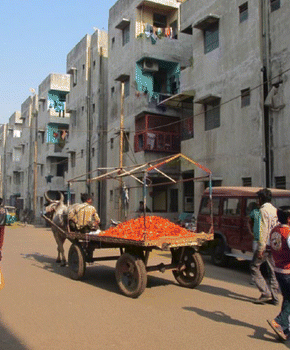
Decentralized Governance or Passing the Buck: the Case of Resident Welfare Associations at Resettlement Sites, Ahmedabad, India
This paper describes the very large numbers of low-income households displaced by development or infrastructure projects in Ahmedabad and their relocation by city government to housing on resettlement sites. It discusses the involvement of the Mahila Housing Trust (MHT) in setting up the required resident welfare associations (RWAs) in eight of these resettlement sites and the difficulties MHT faced in getting residents to follow the many time-consuming procedures that were necessary. Constraints included distrust by residents of the government agencies and the lack of social networks or leadership structures in the resettlement sites resulting from the housing allocation process, which did not keep neighbours or communities together. The city government’s objective for the RWAs was not to support participatory governance or facilitate improvements in the lives of resettled dwellers but to pass on the costs, maintenance and management responsibilities of the resettlement sites to these associations.
